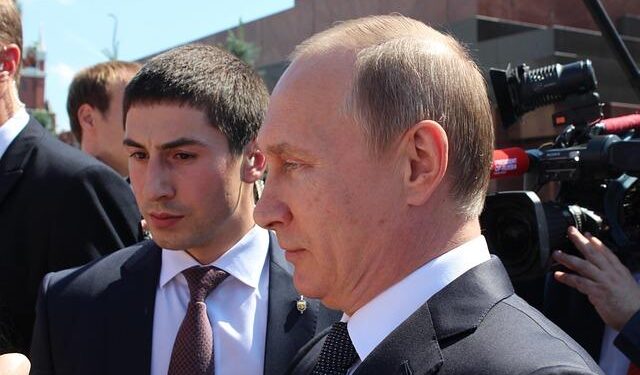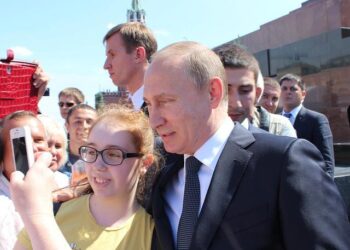In a surprising diplomatic turn, Russian President Vladimir Putin has extended an unexpected offer to the United States, proposing the exchange of rare minerals sourced from both Russia and Ukraine. This development comes against the backdrop of ongoing geopolitical tensions,particularly the prolonged conflict in Ukraine,which has reshaped international relations and economic exchanges in the region. The proposal, which emerges from a landscape characterized by sanctions and strained ties, raises critical questions about resource management, international cooperation, and the potential for dialog between the U.S. and Russia. As both nations navigate a complex web of interests, this offer could be seen as a strategic move, potentially unlocking new avenues for economic collaboration amid a backdrop of uncertainty. This article delves into the implications of Putin’s proposal, the significance of rare minerals in today’s economy, and how this development might influence the broader geopolitical landscape.
Implications of Putins Offer for Rare minerals on U.S.-Russia Relations
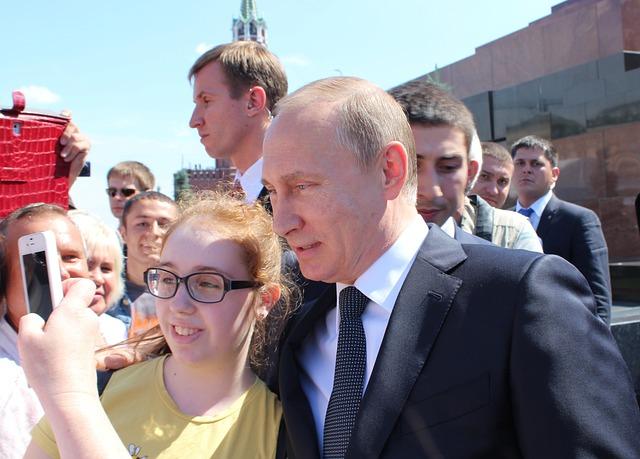
The recent offer from President Putin to supply the United States with rare minerals extracted from both Russian and Ukrainian territories has meaningful implications for U.S.-Russia relations.This gesture, while ostensibly economic, could serve as a strategic maneuver to foster a thaw in diplomatic tensions. By leveraging the critical demand for rare mineralsŌĆöessential components in technology and renewable energy sectorsŌĆöPutin aims to present russia as a reliable supplier, potentially shifting the narrative from adversarial to cooperative. This move may also position Russia as an indispensable player in the global supply chain, compelling the U.S. to reconsider its stance on sanctions and diplomatic isolation.
Though, the U.S. response will be crucial in determining the trajectory of bilateral relations. Factors to consider include:
- Geopolitical Ramifications: How the U.S. aligns itself with allies regarding dependency on Russian resources.
- Market Reactions: The potential impact on global mineral prices and local mining industries.
- Domestic Concerns: Public and political sentiment towards engaging with Russia amidst ongoing conflicts.
In navigating these complexities, a balance must be struck between the need for rare minerals and the underlying political realities.Should the U.S. choose to engage, it may set a precedent for future negotiations involving not just minerals, but broader issues such as cybersecurity, arms control, and climate change.
Understanding the Importance of Rare minerals in Global Markets

Rare minerals play a pivotal role in shaping the dynamics of global markets, as they are essential components in numerous high-tech industries, from electronics to renewable energy. These minerals include elements like lithium, cobalt, and rare earth elements, which are in high demand for products such as smartphones, batteries, and even wind turbines. The geopolitical implications of these minerals are profound, as countries like Russia and ukraine possess significant reserves, making them key players in the global supply chain. By offering their resources to the U.S., both nations are attempting to position themselves as vital partners in an increasingly competitive market.
The increasing reliance on rare minerals has led to a race for dominance among nations, prompting strategic alliances and sometimes contentious negotiations.as countries seek to secure supply chains for these precious resources, various factors come into play, including environmental considerations, labor practices, and trade policies. This multifaceted interaction translates into both opportunities and challenges for economies worldwide. Below are some of the minerals that are highly sought after along with their applications:
| Mineral | Key Applications |
|---|---|
| Lithium | Rechargeable batteries, electric vehicles |
| Cobalt | Batteries, aerospace applications |
| Rare Earth Elements | Magnets, catalysts, phosphors |
| Tantalum | Electronics, capacitors |
Potential Benefits for Ukraine and the Path to Economic Recovery

The recent offer by Putin to supply rare minerals from both Russia and Ukraine to the united States carries significant implications for Ukraine’s economic landscape, particularly in light of the ongoing conflict. Access to these critical resources could foster a renewed sense of collaboration with Western allies and facilitate the influx of foreign investment. This could lead to the establishment of strategic partnerships focused on the mining and processing of these minerals, potentially driving technological advancements and creating job opportunities within Ukraine. The key benefits may include:
- Increased Foreign Investment: Attracting Western companies to invest in UkraineŌĆÖs mining sector.
- Job Creation: Boosting local employment through the expansion of the mineral supply chain.
- Infrastructure Development: Improvements in infrastructure as new mining operations commence.
Moreover, effectively leveraging these rare minerals could serve as a cornerstone for UkraineŌĆÖs broader economic recovery strategy. In combining natural resource wealth with innovative technology, ukraine can carve out a niche in the global market. Establishing a robust framework for governance and sustainability in resource management will also enhance international credibility. To illustrate the potential of Ukraine’s mineral resources, consider this simplified view:
| Mineral | Potential Use | Global Demand |
|---|---|---|
| Lithium | Batteries for electric vehicles | high and increasing |
| Cobalt | Electronics manufacturing | Stable |
| Rare Earth Elements | Technology and defense | Critical |
Environmental Considerations in Mineral Extraction and Production
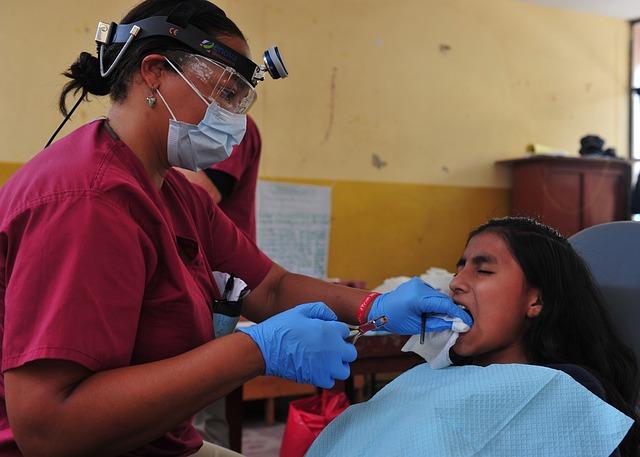
Mineral extraction produces essential resources but carries significant environmental implications. Factors such as habitat destruction, soil erosion, and water contamination often arise during mining activities. To address these challenges, numerous strategies are essential, including:
- Responsible Sourcing: prioritizing minerals sourced from practices that minimize ecological impact.
- Sustainable Practices: Implementing techniques that reduce waste and energy consumption throughout the mining process.
- Restoration Efforts: Engaging in land reclamation initiatives post-extraction to restore ecosystems.
In light of recent developments, the global demand for rare minerals continues to rise, particularly in tech and renewable energy sectors. This growing interest compels stakeholders to scrutinize the production methods linked with these resources. As part of a complete assessment, it is crucial to consider:
| Aspect | Potential Impact |
|---|---|
| Water Use | Risk of depletion and contamination of local water resources. |
| Air Quality | Emission of pollutants affecting nearby communities and ecosystems. |
| Carbon Footprint | Contribution to greenhouse gas emissions through mining activities. |
Strategic Recommendations for U.S. Policy Response and Engagement
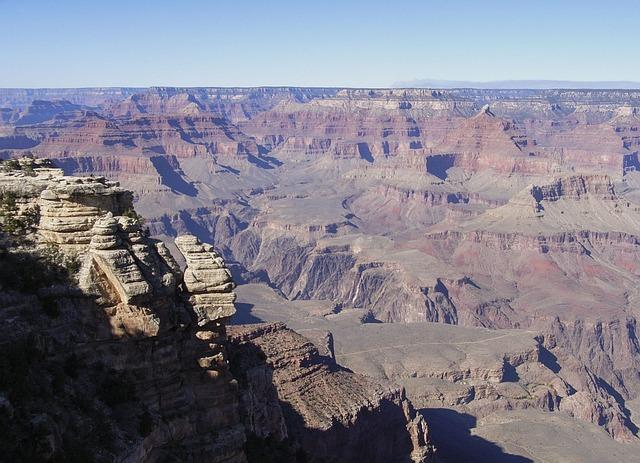
The potential offer of rare minerals from Russia and ukraine presents a complex yet critical prospect for the United States to reconsider its foreign policy and economic alignment in Eastern Europe. First and foremost, a strategic response should involve enhancing diplomatic engagement with both nations. This engagement could take the form of multilateral discussions that not only address trade but also the geopolitical ramifications of mineral exports, ensuring that U.S. interests are safeguarded while also fostering stability in the region. Additionally, strengthening partnerships with allies in Europe will be essential to form a united front and mitigate any potential backlash from a more aggressive U.S. stance.
Moreover, the U.S. should contemplate establishing a framework for investing in the mining sector of both countries, focusing on sustainability and ethical sourcing practices. This could pave the way for collaborative ventures that offer economic benefits while also adhering to environmental standards. Key recommendations include:
- Developing Joint Ventures: Create collaborative projects with local stakeholders to foster economic growth.
- Promoting Transparency: Encourage initiatives aimed at ensuring that mineral extraction adheres to ethical guidelines.
- Implementing Economic Sanctions Carefully: Any sanctions should be meticulously planned to impact geopolitical dynamics positively.
- Investing in Alternative Sources: Support research and development into rare minerals found within U.S. borders to reduce dependency.
In Retrospect
President Vladimir PutinŌĆÖs recent proposal to offer rare minerals from both Russian and Ukrainian sources to the United States marks a significant development in the geopolitical landscape, intertwining economic interests with ongoing tensions in the region. As nations grapple with supply chain vulnerabilities and the need for sustainable resources, this move could redefine alliances and impact global markets. Further analysis will be crucial as the implications of this offer unfold, particularly considering the complex dynamics between Russia, Ukraine, and the West.The potential for cooperation in the minerals sector may signal a turning point,but it also raises questions about the broader political ramifications and the future of diplomatic relations in a region still marked by conflict. As stakeholders respond to this offer, the consequences will be closely monitored, highlighting the intricate balance between opportunity and risk in international affairs.


